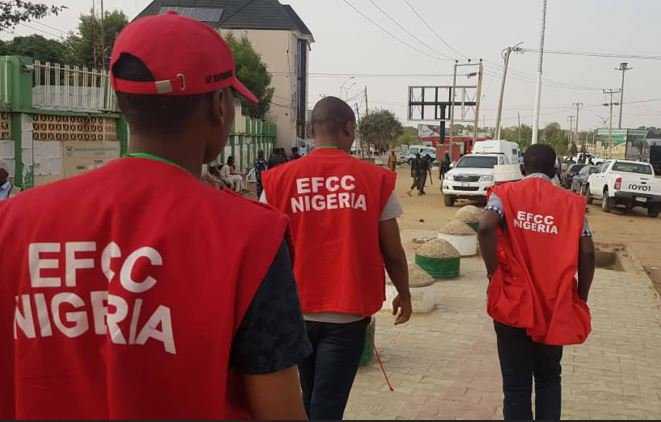Our reporter
The Chairman of the Economic and Financial Crimes Commission (EFCC), Ola Olukoyede, has raised the alarm over the growing threat posed by internet fraudsters, commonly known as “Yahoo boys,” who are increasingly involved in violent crimes and ritual killings.
Speaking during a meeting with The PUNCH’s editorial board at the EFCC headquarters in Abuja on Thursday, Olukoyede outlined the agency’s efforts to combat this disturbing trend.
According to Olukoyede, Nigeria suffered losses exceeding $500 million in a single year due to cybercrime. However, he emphasised that the issue now extends far beyond financial fraud, with internet scammers turning to crimes such as kidnapping, arms trafficking, and ritualistic murders.
“Our efforts to combat cybercrime have intensified,” Olukoyede said. “Last year, we processed over 11,000 complaints, investigated nearly 9,000 cases, and secured convictions for almost 5,000 offenders—despite our limited resources. Unfortunately, some critics misunderstand the scale of the threat posed by these criminals.”
The EFCC Chairman warned that the scope of these criminals’ activities now includes horrific acts of violence, such as kidnapping for ransom and ritual killings, often involving young women as victims. He described several alarming cases uncovered during investigations, which revealed the disturbing extent of these crimes.
“If we fail to act decisively, we risk a future where a generation has been irreparably damaged by these destructive activities,” Olukoyede cautioned, highlighting the urgency of addressing the issue.
In addition to the EFCC’s crackdown on internet fraud, Olukoyede reaffirmed the commission’s commitment to internal integrity. He revealed that, in the past year, 27 EFCC staff members were dismissed for corruption-related offences, underscoring the agency’s zero-tolerance approach to dishonesty.
“You cannot fight corruption while engaging in it,” Olukoyede asserted. “I have consistently challenged anyone to prove I have ever accepted a bribe, and I will continue to uphold the highest standards of integrity within the commission.”
He also called on the media to intensify its role in the fight against corruption, recalling the significant role journalists played in exposing financial scandals before the establishment of the EFCC in the early 2000s. Olukoyede urged the press to collaborate with law enforcement to tackle financial crimes and safeguard the nation’s future.
“The media has always been vital in the fight against corruption,” he said. “We need to return to an era where investigative journalism and law enforcement work hand in hand to expose financial malfeasance and protect our society.”








